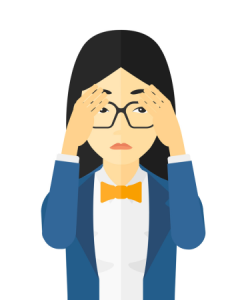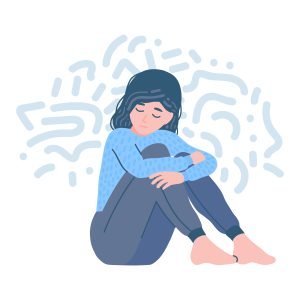Depression is a common mental health issue affecting millions of people worldwide. Yet, it often remains misunderstood and stigmatized. This blog post aims to shed light on this crucial topic, aiming to educate readers further and help break down these harmful stigmas.
The first step is to understand the prevalence of depression. An estimated 17.3 million adults in the United States have had at least one major depressive episode in the last year. Despite its prevalence, many people still hesitate to seek help for fear of being judged or misunderstood.
We may begin to tear down these barriers by educating ourselves and others. This can begin with supporting those around us and normalizing the mental health dialogue. Support groups and therapeutic services in the community can also greatly aid individuals in need.
“Depression is awful beyond words or sounds or images. It bleeds relationships through suspicion, lack of confidence and self-respect, the inability to enjoy life, to walk or talk or think normally, the exhaustion, the night terrors, the day terrors… There is nothing good to be said for it.” – Dr. Kay Redfield Jamison
It’s essential to remember that it’s okay to seek help. Mental health is just as important as physical health. Through understanding, compassion, and action, we can all play a part in breaking the stigma around depression.
Understanding Depression

What Is Depression
Depression is a mood condition marked by persistent sorrow, hopelessness, and a lack of interest or pleasure in activities. It impacts how a person thinks, feels, and behaves, leading to physical and emotional difficulties. Depression can range from moderate to severe, lasting weeks, months, or even years.
While transient feelings of sadness or grief are appropriate, depression is different. It is a state of continuous distress that impacts a person’s general well-being and functioning. It can have an impact on their relationships, their career or school performance, and even their physical health.
Causes of Depression
The exact cause of depression is not fully understood, as a combination of factors can influence it. These factors may include:
-
Biological Factors: Brain chemical imbalances, such as serotonin, norepinephrine, and dopamine, can contribute to depression. Genetics and family history may play a role, as people with a family history of depression are likelier to suffer from it.
-
Psychological Factors: Certain psychological factors can enhance the likelihood of depression developing. These are examples of a history of trauma or abuse, low self-esteem, or a negative attitude toward life. Depressive episodes can be triggered by stressful life events such as the death of a loved one or a significant life shift.
-
Environmental Factors: A person’s mental health can be influenced by their environment. Depression can be influenced by socioeconomic level, access to healthcare, living environment, and social support networks.
It is critical to understand that depression can afflict anyone, regardless of age, gender, or social background. It is not a sign of weakness or a deficiency in character but rather a medical condition that necessitates understanding and assistance.
Signs and Symptoms of Depression
Recognizing depression’s indications and symptoms is critical for obtaining prompt aid and support. While everyone’s experience with depression is unique, the following are common signs and symptoms:
-
Persistent Sadness: Feelings of sadness, down, or hopelessness most of the time, often for no apparent reason.
-
Loss of Interest: Losing interest in being with friends, family, activities, or hobbies that were once enjoyable.
-
Changes in Appetite: Experiencing significant weight loss or weight gain, along with changes in appetite.
-
Sleep Problems: Trouble falling asleep, staying asleep, or oversleeping.
-
Fatigue: Feeling tired, lacking energy, and experiencing a general sense of low motivation.
-
Difficulty Concentrating: Trouble focusing, making decisions, or remembering things.
-
Physical Symptoms: Experiencing unexplained physical ailments such as headaches, stomachaches, or body aches.
-
Feelings of Guilt or Worthlessness: Feeling excessive guilt, worthlessness, or self-blame.
-
Thoughts of Death or Suicide: Recurring thoughts of death, dying, or suicidal ideation.
It’s crucial to realize that occasionally experiencing one or two of these symptoms does not inevitably imply depression. If these symptoms persist for an extended period of time, interfere with everyday living, or cause substantial discomfort, it is best to seek professional assistance.
If you or someone you love is suffering from depression, it is critical that you seek help and assistance. There are a variety of resources accessible, such as mental health specialists, helplines, and support groups that can provide essential aid and help overcome the stigma associated with depression.
For more information on depression, you can visit reputable sources such as the National Institute of Mental Health or Mayo Clinic.
The Impact of Stigma on Mental Health
Stigma refers to the negative attitudes, prejudices, and discrimination encountered by people with mental illnesses. It is a substantial barrier that inhibits many people from getting treatment and support for mental health problems. In this section, we will define stigma, discuss how it impacts persons suffering from depression, and present examples of stigmatizing behaviors.

Definition of Stigma
Stigma refers to cultural beliefs and attitudes that characterize those suffering from mental illnesses as abnormal, dangerous, or inept. These ideas are frequently the result of a lack of understanding and fear. The media helps to perpetuate stigma by portraying mental illness incorrectly or misleadingly.
Stigma refers to the negative attitudes, prejudices, and discrimination experienced by those suffering from mental diseases. It significantly impedes many people from receiving treatment and assistance for mental health issues. This section will define stigma, discuss how it affects people who are depressed, and provide examples of stigmatizing behaviors.
How Stigma Affects Those with Depression
Individuals suffering from depression face significant stigma. It can result in feelings of embarrassment, isolation, and low self-esteem. Many people suffering from depression internalize the negative views connected with mental illness, making it difficult for them to seek help. Fear of being treated differently or suffering discrimination often discourages people from seeking help.
Stigma also affects loved ones who help people who are depressed. Family members may experience societal censure and stigma due to caring for someone with a mental illness, adding to the hardship of caring for someone with a mental illness. Stigma has a significant influence on individuals and their families.
Examples of Stigmatizing Behaviors
Stigmatizing behaviors can manifest in various ways. Some common examples include:
-
Stereotyping: People with depression are often stereotyped as dangerous, incompetent, or to blame for their condition. These stereotypes perpetuate negative attitudes and discrimination.
-
Discrimination: Stigma can lead to discriminatory practices, such as employers refusing to hire individuals with depression, landlords denying them housing opportunities, or the healthcare system offering a lower standard of care.
-
Social exclusion: Individuals with depression may experience social isolation and exclusion due to the stigma associated with their condition. This isolation can further exacerbate their symptoms and make it more challenging to seek help.
To establish a more supportive and understanding society for people suffering from depression, it is critical to challenge and address these stigmatizing behaviors.
Check out this website for more information on stigma and its impact on mental health.
The Importance of Discussing Depression
Depression is a widespread mental health problem affecting millions of people worldwide. However, because of the stigma associated with mental illness, many people hesitate to talk about their problems or seek help. It is critical to remove this stigma and promote open conversations about depression.
By openly discussing depression, we may create an environment where people feel comfortable expressing their experiences and getting help. This can assist in overcoming myths and preconceptions by raising awareness and understanding of the condition.
The Role of Education in Reducing Stigma
Education is critical in decreasing the stigma associated with depression. We can dispel misunderstandings and build empathy and understanding by sharing accurate information about the causes, symptoms, and treatments of depression.
People knowledgeable about depression are more likely to detect the symptoms in themselves or others and seek appropriate treatment. Individuals are empowered by education to question negative beliefs and attitudes and to support others who are depressed.
Visit reliable resources such as the National Institute of Mental Health (NIMH) or the American Psychological Association (APA) to learn more about depression and its effects. These websites are excellent resources for understanding depression and offering advice on supporting people suffering from this crippling condition.
Being Misunderstood & Ostracized
One of the unfortunate consequences of the stigma surrounding depression is the misunderstanding and ostracization that individuals with the condition often face. Due to misconceptions and judgment, people with depression may be isolated or excluded from social activities, workplaces, or even within their own families.
It is crucial to promote empathy and understanding to combat this mistreatment. By educating ourselves and others about depression, we can challenge the stereotypes that contribute to these negative attitudes. We can strive to create inclusive and supportive environments where individuals with depression feel accepted and valued.
Sharing Personal Stories and Experiences
 Sharing personal stories and experiences is an effective strategy to combat the stigma associated with depression. Sharing experiences humanizes the condition and shows others they are not alone in their battle.
Sharing personal stories and experiences is an effective strategy to combat the stigma associated with depression. Sharing experiences humanizes the condition and shows others they are not alone in their battle.
Personal stories give hope and motivation to people who are facing similar situations. They also assist in dispelling prejudices and misconceptions by highlighting the variety of experiences that people suffering from depression may have.
In the cruel embrace of life’s most complex trials — I experienced sudden death, unexpected debt, and a debilitating medical ordeal — I was lost in the murky depths of depression. Often, it felt as if I had been exiled to a solitary island, adrift in an unending sea of melancholy, misunderstood by those I held dearest. My close friendships fizzled because I could no longer give myself as I had done countless times. The ties with some of my children and other family members weakened, and the ostracism became as excruciating as the initial traumas I had just experienced. The depression I was experiencing was misunderstood as being distant or unwilling to invest enough into whatever investment was needed, whether time or money. I slowly realized that the “I love you’s” were often conditional because they disappeared when I needed those who said those words quickly.
Needless to say, I became more distant and withdrew myself from anything and anyone that would take me out of the comforts of my safe place, “home.” I accepted that I had a few people who still loved me enough to fight with and for me. Those people that never gave up on me — gave me the courage I needed to start over. The story is much deeper, the wounds are still fresh, and the battles are ongoing but know that as I begin again, so can you.
 Know this, dear reader: You are not alone. Each tear you shed, every moment of despair, is a shared experience with countless others who’ve faced the same turbulent seas. The heart-wrenching solitude you feel is a sign of your strength, your incredible resilience in the face of overwhelming odds. You are misunderstood not because you’re weak but because you are confronting an unimaginable pain with courage many will never comprehend. As we navigate this journey together, through the darkest nights and against the fiercest storms, always remember: your light, your spirit, will pierce the gloom. The world may feel vast and isolating but know others are reaching out through the fog, yearning to understand, and ready to embrace you with empathy and kindness.
Know this, dear reader: You are not alone. Each tear you shed, every moment of despair, is a shared experience with countless others who’ve faced the same turbulent seas. The heart-wrenching solitude you feel is a sign of your strength, your incredible resilience in the face of overwhelming odds. You are misunderstood not because you’re weak but because you are confronting an unimaginable pain with courage many will never comprehend. As we navigate this journey together, through the darkest nights and against the fiercest storms, always remember: your light, your spirit, will pierce the gloom. The world may feel vast and isolating but know others are reaching out through the fog, yearning to understand, and ready to embrace you with empathy and kindness.
Consider sharing your story on blogs or social media if you or someone you know has struggled with depression. Your words can change someone’s life and encourage them to seek therapy.
Promoting Empathy and Understanding
Promoting empathy and understanding is critical in removing the stigma associated with depression. It is critical to remember that depression is a valid medical disease, not a flaw or weakness in one’s character.
Promoting empathy can create a safe space for people to discuss their feelings and experiences without fear of being judged. Empathy enables us to listen, affirm, and support others who are depressed, making them feel seen and understood.
Numerous online resources help you learn more about cultivating empathy and understanding. Websites such as PsychCentral and Verywell Mind offer information and advice on creating empathy and supporting those who are depressed.
Remember that eradicating the stigma around depression takes society’s collaborative efforts. We can build a more compassionate environment where people with depression can thrive by openly discussing depression, educating ourselves and others, sharing personal stories, combating misunderstandings, and fostering empathy and understanding.
Strategies for Spreading Awareness about Depression
Making Use of Social Media Platforms
In today’s digital age, social media has become an extremely effective tool for raising awareness about various illnesses, including depression. Individuals and organizations can reach a large audience and engage in essential conversations using platforms like Facebook, Instagram, Twitter, and LinkedIn. You can educate others about depression and help break its stigma by sharing informative pieces, personal stories, and mental health resources. To boost your work’s visibility, utilize hashtags such as #MentalHealthAwareness and #EndTheStigma. Consider engaging with influencers or mental health organizations to increase the reach of your message.
Participating in Community Outreach Programs
Community outreach activities are critical in raising awareness about depression. These programs involve contacting local schools, colleges, community organizations, and employers to give mental health education. Individuals can be equipped with the knowledge and resources to recognize the indications of depression and seek assistance by holding workshops, seminars, and interactive sessions. Work with local healthcare practitioners, therapists, and counselors to ensure accurate information and expert guidance. Remember to increase participation by advertising these outreach programs through fliers, posters, and local media outlets.
Organizing Mental Health Workshops and Events
Organizing mental health events and seminars can provide a safe environment for people to learn, share, and connect with others who have or are experiencing depression. Think of hosting panel discussions, guest speaker sessions, or art therapy workshops. These gatherings provide an opportunity to educate visitors on depression, its effects, and treatment alternatives. Collaborate with mental health experts, peer support groups, and community organizations to ensure a varied spectrum of opinions. Use digital tools to advertise these events and urge more people to attend.
Collaborating with Mental Health Organizations
Collaborating with recognized mental health groups can significantly increase the impact of your efforts to raise awareness about depression. These organizations have the knowledge, resources, and networks to reach a larger audience and make a more considerable difference. Collaboration with them can lead to various options, such as joint campaigns, blog contributions, and fundraising events. Working together allows you to capitalize on each other’s strengths, creating a more unified and effective awareness campaign. To investigate potential collaboration options, contact groups such as the National Alliance on Mental Illness (NAMI), Mental Health America (MHA), or local mental health clinics.
Remember that raising awareness about depression is a continuous effort that involves perseverance, empathy, and collaboration. You may help to reduce the stigma around depression and foster a more supportive and understanding society by using social media platforms, participating in community outreach programs, creating mental health events and workshops, and cooperating with mental health groups.
Visit the following websites for further information on depression and mental health resources:
- National Institute of Mental Health (NIMH)
- National Alliance on Mental Illness (NAMI)
- Mental Health America (MHA)
**Please remember that the material in this blog post is for educational purposes only and should not be used to replace professional medical advice. If you or someone you know is suffering from depression or any mental health problem, please seek the assistance of a trained healthcare practitioner.
Support and Resources for Individuals with Depression
Living with depression can be difficult, but you must realize you don’t have to go through it alone. Various support networks and services are available to assist you in navigating this challenging road. There are solutions geared to your specific needs, whether you choose professional assistance, peer support, or self-help tactics.
Professional Help
Seeking professional counseling for depression management can provide significant guidance and support. Psychiatrists, psychologists, and therapists are qualified to assist clients in navigating through their emotional difficulties. They can offer you a secure area to express your ideas and feelings, as well as coping methods and guidance on the road to recovery.
If you’re unsure where to find a mental health professional, websites like Psychology Today and BetterHelp provide directories where you may search for therapists based on geography, specialization, and other criteria. These platforms also summarize each professional’s qualifications and areas of specialization, allowing you to make an informed decision.
Note: If you or someone you know is in crisis, be sure to contact a hotline or a mental health professional as soon as possible.
Support Groups and Peer Networks
Connecting with individuals who have been or are presently facing similar struggles can be pretty empowering. Peer networks and support groups foster a sense of connection, understanding, and shared experiences. Relating to those who understand your challenges can help you feel less isolated and more at home.
You can discover local support groups by contacting local mental health organizations or asking your healthcare physician for referrals. Online forums, such as the Depression and Bipolar Support Alliance and 7 Cups, offer virtual support groups where you can connect with individuals worldwide.
Helplines and Online Mental Health Resources
Helplines and online mental health websites are valuable resources that provide quick assistance and information. They can be especially useful in times of crisis or when you require assistance outside of usual office hours.
SAMHSA’s National Helpline (1-800-662-HELP) is an example of a free, confidential, and 24/7 helpline available to individuals and families facing mental health and substance use disorders. Additionally, their online treatment locator can help you find treatment centers near you.
Other online mental health resources, like NAMI (National Alliance on Mental Illness) and Mental Health America, provide in-depth information about various mental health issues, self-help practices, and extra resources to aid you on your path.
Self-Help Strategies for Coping with Depression
While professional assistance and peer support are essential, there are also self-help tactics you may implement in your daily life to manage depression. These tactics can supplement expert treatment while empowering you to participate actively in your health.
- Engage in regular physical activity: Exercise produces endorphins, which are believed to improve mood and alleviate depression symptoms. Find an activity you enjoy, whether walking, yoga, or dancing to your favorite music.
- Practice self-care: Make self-care and self-compassion activities a priority. This could involve getting adequate sleep, eating a healthy diet, participating in hobbies you enjoy, and making time for leisure.
- Challenge negative thoughts: Depression frequently alters our picture of ourselves and our surroundings. Practice detecting and replacing negative beliefs with more positive and realistic ones. Techniques from cognitive-behavioral therapy (CBT) can be beneficial in this process.
- Build a support network: Surround yourself with people who encourage and support you. A solid support network, whether friends, family, or support groups, can significantly impact your recovery journey.
Remember: Everyone’s depression experience is unique, and what works for one person may not work for another.
Trying out different tactics and resources is critical to see what works best for you. Seeking professional help, connecting with support groups, using helplines, and practicing self-help tactics are all crucial steps toward reducing the stigma associated with depression and raising awareness.
Conclusion
Finally, it is critical to dispel the stigma associated with mental health conditions, particularly depression. With about one in every five persons in the United States having mental illness each year, it is evident that this is a widespread problem that requires attention. We can assist in breaking down the obstacles that prevent people from getting treatment by improving mental health awareness through education, knowing facts, and speaking out about mental health.
One method to raise awareness is to communicate with your family, friends, and coworkers, letting them know they have your support and that it is acceptable to seek mental health care. Volunteering with local mental health non-profits, writing to lawmakers, and participating in the continuing discourse about mental health can all help.
It is also critical to make use of local resources. Individuals and families with mental illness require community-based resources such as support groups, therapeutic services, crisis hotlines, and educational initiatives. Organizations such as NAMI provide various free tools and activities to help persons with mental illness.
Remember that everyone has the right to quality mental health care. With compassion and sensitivity, we can assist patients in determining the best treatment alternatives for their specific situation, allowing them to begin long-term rehabilitation. Let us encourage mental health education, awareness, and support to ensure that no one encounters these issues alone.







